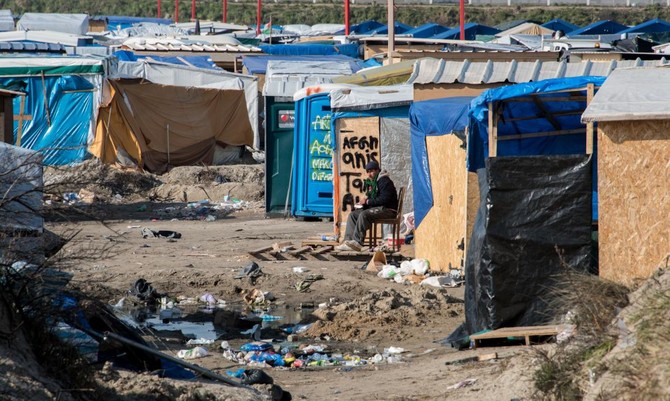Crutch-Dependent Migrant Allowed on Rubber Boat to English Channel Amidst Surging Illegal Crossings
Authorities in France failed to obstruct an impaired individual, dependent on a crutch for mobility, from getting onboard a migrant boat destined for the English Channel. This individual was among the many who embarked on a rubber boat from a stretch of shore located close to Calais. This incident happened in the midst of growing anxiety over the increasing issue of small-scale, illegal migrations and in anticipation of an upcoming rise in attempts owing to more conducive weather conditions.
The individual heavily reliant on the crutch was part of a group led by a concealed trafficker early on a Wednesday morning. Taking to the lengthy, sandy expanses of Gravelines beach, they navigated through the shallow waters, setting out into the channel. Disturbingly, there was no French security official in sight to hinder this action.
His accomplice assisted him in trudging out to the boat, while being cheered on from afar as he successfully embarked on the overcrowded small boat. Unlike his fellow aspirant voyagers, he undertook this risky journey without the safety of a lifejacket.
Statistics indicate an alarming leap in the number of illegal crossings via these small boats over the Channel. Currently, it has exceeded last year’s count by about 22 per cent during the same period. From January to mid-June of this year, the number of recorded migrants reaching the UK rose to 16,317, a drastic increase from the same timeframe the previous year, which saw 13,489 crossings.
On a single day early in the week, another 228 migrants successfully crossed in four separate boats, as reported by the Home Office. The day prior saw 134 individuals reaching the English coast in a pair of boats. Unsettling records were set the day before that, with over 900 people crossing in a total of 14 boats, marking the highest number of crossings in a single day in several weeks.
The risk associated with these illegal migrations stands paramount. From the start of the present year, at least 15 lives have been claimed by the unforgiving sea during these dangerous crossings, as recorded by French authorities. In the preceding year, this perilous journey cost over 78 migrants their lives.
Over the weekend, the French coastguard reported that they had rescued approximately 100 people who had embarked on this journey during the last 24 hours. These incidents amidst growing aggravation over France’s perceived lax measures in dealing with the issue. Current reports indicate that the coastguard has thwarted fewer than 40 percent of the attempted crossings, marking a historical dip.
These figures come despite a £480 million three-year pact between Britain and France to intensify efforts to prevent these illegal ventures. French officials have committed to regrouping and devising a new strategy ahead of an impending bi-national summit, set to begin on July 8.
This new approach will incorporate increased vigilance in pirate boat interceptions at sea, initiated up to 300 metres from the coast—a tactic never employed before. A Labour minister endorsed this overhaul, highlighting it as a pivotal amendment to cut down on the influx of economic migrants and asylum seekers into the UK.
In an effort to clamp down on the increasing frequency of these migrations, French authorities have started employing harsher countermeasures, including using tear gas to disperse groups gathered along the beaches. Surveillance drones are being used to monitor a 75-mile stretch of the coastline, overseen by hundreds of forces personnel.
The beach at Gravelines witnessed a significant deployment of security, specifically targeted inland in a strategic move to deter migrants from even attempting to cross. French authorities report a two-thirds success record in preventing these vessels from setting out.
While authorities ramp up their efforts, living conditions in migrant camps in northern France continue to deteriorate, causing strife among the inhabitants eager to depart. Over one weekend, two incidents resulted in the fatal shooting of two migrants in camps near Dunkirk, leaving five others injured. Those involved were reportedly of Sudanese origin.
Following these events, armed officers arrested two individuals suspected to belong to a gang, in connection with one of the shootings. The suspects, a 29-year-old reportedly from Iraq and a teen from Afghanistan, were taken into custody by the public prosecutor’s office.
A volunteer closely associated with migrant organisations near Grande-Synthe, host of a large migrant camp outside Dunkirk, confirmed heightened tension in the region over the past few weeks. She attributed the worsening of the situation to the authorities’ attempts to shut down these camps.
One such camp close to Loon Plage houses nearly 2,000 residents, a significant increase from about 1,000 last winter. These simmering tensions are also fueled by the activities of trafficking gangs. However, it’s important to note that this violence signifies deeper issues, stemming from the migratory policy being pursued at the border.

